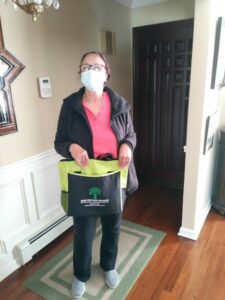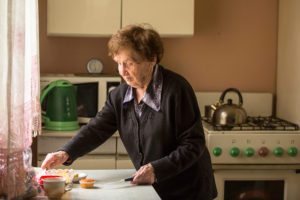Caregiver of the Month: Sasha B
Caregiver of the Month: Sasha B Home Care Services, Huntington, NY Sasha B was selected to be the Caregiver of the Month for May 2021 at Family First Home Companions. Sasha’s dedication to her client, perfect attendance record, willingness to help by substituting on open shifts, and excellent care services earned her the award…
Read MoreWatching For Signs of Heat Stress in The Elderly
Elder Care in West Hempstead NY Warmer weather means enjoying more outdoor activities but it can also mean facing the reality of heat stress. Your elderly loved one is particularly vulnerable to heat stress, so there are some things that you need to know in order to be prepared. What Is Heat Stress? Heat…
Read More6 Ways to Boost a Low Mood
Elderly Care in Smithtown NY Clinical depression takes a lot more than just a few little changes to your day for you to overcome it, but if you’re just having a low day, it helps to have some tricks up your sleeve. Each of these activities can only take a few minutes, but they can…
Read MoreCaregiver of the Month: Priscilla
Priscilla P was selected to be the Caregiver of the Month for April 2021 at Family First Home Companions. Priscilla’s dedication to her client, perfect attendance record, willingness to help by substituting on open shifts, and excellent care services earned her the award and recognition.
Read MoreWhy Do People With Dementia Repeat Themselves?
Home Care Services, Melville, NY Dementia is a term used to describe a cognitive impairment. Dementia can cause a variety of symptoms including short-term memory loss, poor judgment, loss of language and verbal skills, and confusion with time and/or place. There are many forms of dementia including vascular dementia, Lewy Body dementia, frontotemporal, and Alzheimer’s…
Read MoreThe Importance of Home Inspections for Seniors Looking to Age In Place
The Importance of Home Inspections for Seniors Looking to Age in Place Article provided by The Importance of Home Inspections for Seniors Looking to Age in Place (inspectionsupport.net) There are many reasons senior citizens prefer to “age in place” in their own homes rather than moving to a nursing home or assisted living facility. For one thing,…
Read MoreCaregiver of the Month: Faustina
Home Care Services, Huntington, NY Faustina was selected to be the Caregiver of the Month for March 2021 at Family First Home Companions. Faustina’s dedication to her client, perfect attendance record, and excellent care services earned her the award and recognition. Faustina has been a caregiver with Family First Home Companions since 2011 and has…
Read MoreDementia Activities for Spring
Home Care Agency in Melville, NY If you are a professional caregiver or have a family member who is living with dementia, you probably know the benefits of cognitively stimulating activities. These activities not only provide benefits for brain health and improve the symptoms of dementia, they are also a great way to pass the…
Read MoreCaregiver of the Month: February
Home Care Services, Bay Shore, NY Wendy Keene-Ivey was selected to be the Caregiver of the Month for February 2021 at Family First Home Companions. Wendy’s dedication to her client, perfect attendance record, and excellent care services earned her the award and recognition. Wendy has been a caregiver with Family First Home Companions since 2020…
Read MoreChoosing Between 24/7 Live-In Care and An Assisted Living Facility
While there are many options for long term care, 24/7 live-in care and assisted living are among the most popular. Both offer solutions to the challenges of managing daily living activities for older adults.
Read More







